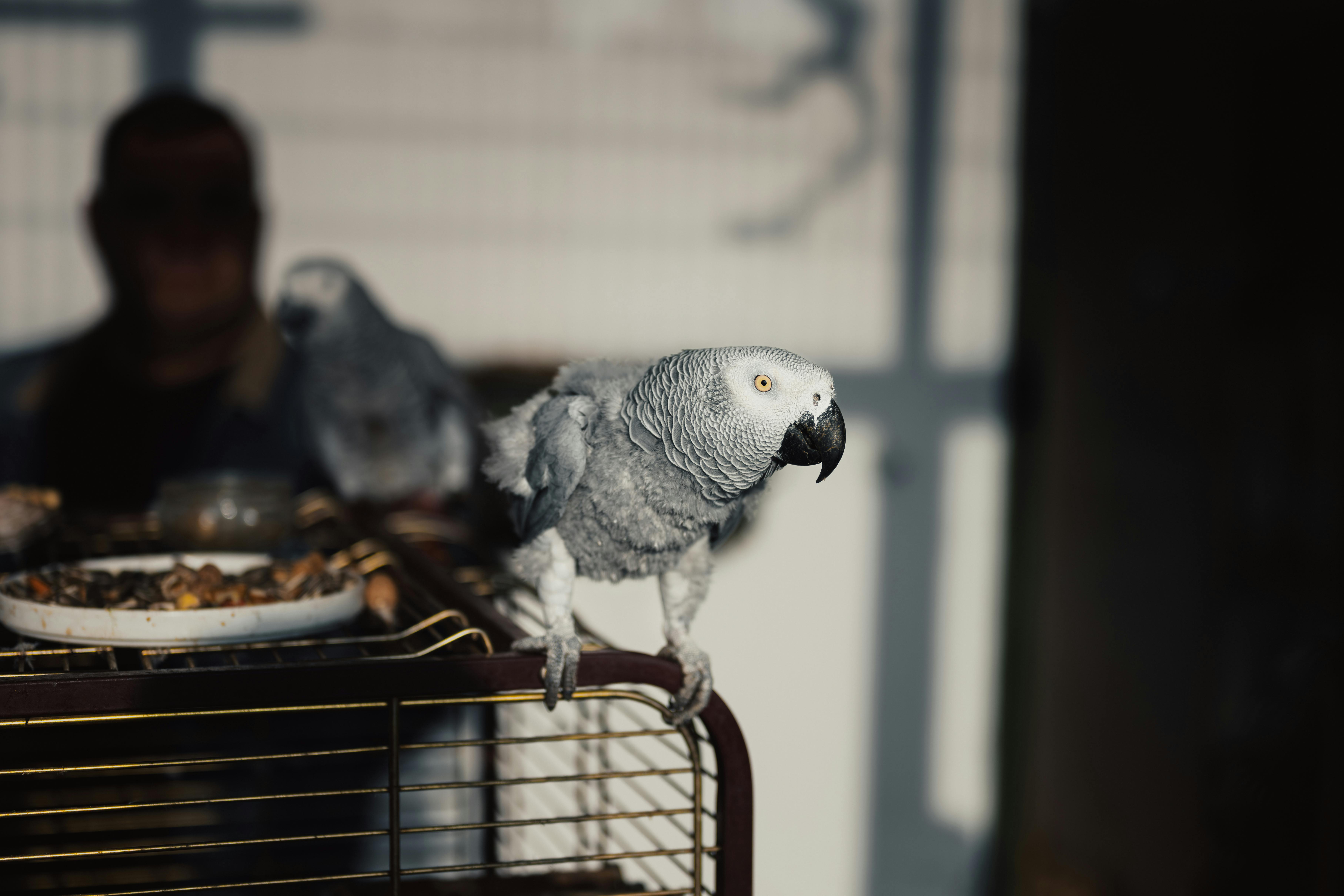
Effective Ways to Care for a Netherland Dwarf Rabbit in 2025
Caring for a Netherland Dwarf Rabbit can be a rewarding experience, especially for those who are new to pet ownership. These small and playful rabbits are known for their affectionate nature and charming personalities. Understanding how to provide the best care for your dwarf rabbit is crucial in ensuring their health and happiness.
In 2025, as more pet owners embrace the joys of having a rabbit, it's important to stay updated on proper care techniques. From nutrition to grooming and socialization, every aspect plays a significant role in the well-being of your Netherland Dwarf. This article explores the effective ways to care for your dwarf rabbit, including habitat setup, diet, training, and health management. By following these expert tips, you'll ensure your furry friend thrives in your home.
Key takeaways include a focus on their specific habitat needs, understanding their behavioral traits, and ensuring effective socialization with humans and other animals. Let's delve into these essential topics systematically to provide a comprehensive overview of dwarf rabbit care.
Understanding the Netherland Dwarf Rabbit Breed
To care for a Netherland Dwarf Rabbit successfully, one must first understand the breed's unique characteristics. This breed is one of the smallest in the rabbit world, typically weighing between 1.5 to 3.5 pounds and standing at around 6 to 12 inches in height. Their compact size and friendly personality make them ideal pets for families.
Netherland Dwarfs are known for their playful and sociable nature. However, like any pet, they require specific care methods to thrive. Understanding the right settings and routines helps in catering to their needs effectively.
Dwarf Rabbit Characteristics
Netherland Dwarfs are distinguished by their round faces, short ears, and compact bodies. Their temperament is generally calm, but they can be quite energetic and curious. Early socialization is vital to develop a well-rounded personality and help them adapt to their surroundings. It’s important to recognize various personality traits within the breed, which can affect their interaction with humans and other pets.
Common Rabbit Health Issues
Being aware of common health problems can greatly enhance your rabbit's quality of life. Conditions such as dental disease, gastrointestinal stasis, and ear infections are prevalent among rabbits. Regular veterinary check-ups are essential to monitor their health and catch any issues early on.
Dwarf Rabbit Lifespan and Growth
Netherland Dwarf Rabbits typically live for about 7 to 10 years with proper care. Factors such as diet, exercise, and living conditions contribute to their health and longevity. Understanding the different growth stages will help owners align their care routines appropriately through each phase.
Social Needs of Rabbits
Dwarf rabbits have strong social needs. They thrive on interaction, both with humans and other pets. Spend quality time with your Netherland Dwarf and consider adopting a second rabbit if space and resources allow. This can significantly reduce feelings of loneliness and improve overall well-being.
Setting Up the Perfect Habitat for Your Dwarf Rabbit
Creating an ideal habitat for your Netherland Dwarf is essential for their comfort and happiness. A well-designed space not only keeps them secure but also stimulates physical activity and mental engagement.
Start with an adequately sized cage, ensuring it includes separate areas for eating, sleeping, and playing. Choose bedding made from safe, absorbent materials, and provide various toys for enrichment. Allow for enough space outside the cage for regular exercise to maintain physical health.
Rabbit Cage Setup
Your rabbit's cage should be spacious enough for them to hop around and stretch out. A minimum cage size of four times the rabbit's length is typically recommended. It's crucial to keep the enclosure clean and safe, removing waste daily and replacing bedding regularly.
Rabbit Habitat Necessities
Ensure that your rabbit's habitat includes hiding spots, such as tunnels or boxes, where they can retreat when feeling anxious. This promotes a sense of security and aids in reducing stress levels. Additionally, consider providing ramps or ledges to encourage climbing as part of their exercise regimen.
Rabbit Litter Training
Teaching your dwarf rabbit to use a litter box is beneficial not only for hygiene but also for their comfort. Start by placing a shallow litter box in a corner of their cage. Use paper-based or wood-based litter that is safe for rabbits. Reward them when they use the box to foster positive associations.
Rabbit Exercise Needs
Regular exercise is essential for keeping your Netherland Dwarf healthy and active. Allow them time outside their cage each day, preferably in a safe area where they can explore freely. Consider adding agility tunnels or ramps for added fun and stimulation.
Nutrition Guidelines for a Healthy Dwarf Rabbit
Feeding your Netherland Dwarf a balanced diet is crucial for their growth and health. Understanding their dietary requirements will help you choose the right foods and avoid common pitfalls.
A proper diet for a dwarf rabbit includes high-quality hay, fresh vegetables, and pellets formulated specifically for rabbits. Hay, being the primary component, contributes to healthy digestion and prevents dental problems. Overfeeding pellets or treats can lead to obesity and other health issues.
Netherland Dwarf Diet Essentials
A balanced diet should consist of unlimited access to hay, a variety of leafy greens, and a measured amount of rabbit pellets daily. Introduce new vegetables gradually to avoid digestive upset. Always avoid toxic foods, such as chocolate, avocado, and certain seeds.
Feeding Dwarf Rabbits Correctly
Portion control is key when feeding dwarf rabbits. Monitor their intake and adjust accordingly to maintain a healthy weight. Pay attention to any changes in behavior or appetite as they can indicate health issues requiring veterinary attention.
Rabbit Water Needs
Hydration is vital to a rabbit's health. Fresh water should always be available, whether in a bowl or a water bottle. Change the water daily and clean the containers to prevent bacteria buildup. If your rabbit is reluctant to drink, consider adding soaked greens to their diet for extra moisture.
Rabbit Health Tips
Regular veterinary care is necessary for maintaining your dwarf rabbit's health. Schedule annual check-ups to monitor weight, dental health, and overall well-being. Stay informed about vaccinations and preventative care practices to safeguard against common rabbit illnesses.
Grooming Your Netherland Dwarf Rabbit
Regular grooming is pivotal for maintaining a healthy coat and preventing issues such as matting or skin irritations. Understanding the specific needs of your dwarf rabbit can help you develop an effective grooming routine.
Netherland Dwarfs have a fine coat that requires minimal grooming, but regular brushing helps remove loose hair and debris. During shedding seasons, which can fluctuate, additional grooming may be necessary to manage the excess fur.
Grooming Tools for Rabbits
Invest in quality grooming tools such as a soft brush, nail clippers, and a grooming mitt. Each tool serves a distinct purpose and will simplify the grooming process. Regularly check your rabbit's nails and trim them to ensure they don’t get too long, as this can cause mobility issues.
Dwarf Rabbit Grooming Routines
Create a consistent grooming schedule, grooming your rabbit at least once a week and more frequently during shedding. Monitor your rabbit’s body condition, and inspect for any skin conditions or abnormal fur loss, as these can signify underlying health issues.
Maintaining Rabbit Hygiene
Hygiene is key to preventing health complications. Clean their living environment, including bedding and litter boxes, regularly. Ensure your rabbit's favorite areas are just as clean to prevent discomfort and stress.
Rabbit Dental Health
Dental problems can be common in rabbits. Provide plenty of hay and chew toys to promote healthy chewing habits. Regular dental check-ups with a veterinarian will help identify any issues before they become serious.
Training and Socialization for Dwarf Rabbits
Training and socialization play crucial roles in the development of a well-adjusted Netherland Dwarf Rabbit. Establishing positive interactions with your pet can lead to a rewarding relationship that enhances both their physical and emotional well-being.
Starting socialization early helps to minimize behavioral issues and fosters trust between you and your rabbit. Consistent training methods and positive reinforcement can help your rabbit learn essential skills, promoting good behavior.
Pet Rabbit Training Techniques
Use gentle training techniques to teach basic commands such as "come" or "no." Using treats as rewards can encourage positive associations with training sessions. Patience is key; remember that every rabbit has its own learning pace.
Rabbit Socialization Tips
Allow opportunities for your rabbit to interact with various people and pets. This helps them become well-rounded and reduces fear or anxiety in new situations. Ensure encounters are positive and rewarding with treats or affection, making them eager for social interactions.
Dwarf Rabbit Behavioral Insights
Understanding common dwarf rabbit behaviors aids in recognizing their needs and emotions. Watch for signs of stress or anxiety during interactions. Adjust environment and social experiences accordingly to foster a happy and healthy relationship.
Building Bonds Through Play
Engaging in playtime allows for bonding and encourages exercise, crucial for your dwarf rabbit's overall health. Invest in interactive toys that stimulate physical activity and mental engagement, fostering enjoyment and independence in your rabbit.

Common Dwarf Rabbit Illnesses
Awareness of common illnesses will empower you as a rabbit owner to take prompt action when necessary. Knowledge about prevalent health issues will lead to better preventive care and quicker results if problems arise.
Among the most significant health concerns for dwarf rabbits are dental and gastrointestinal conditions. Keeping their habitats clean and providing a balanced diet reduces the likelihood of these diseases, but regular vet consultations are essential for ongoing care.
Recognizing Rabbit Health Issues
Monitoring your rabbit daily can help you identify any signs of potential health issues early on. Pay attention to changes in behavior, appetite, or energy levels. Weight loss or lethargy are indicators that should prompt immediate veterinary attention.
Preventative Health Measures
Vaccination schedules and routine check-ups are fundamental in keeping your dwarf rabbit healthy. Keeping a log of your rabbit's health history can assist any veterinarian in understanding their care needs better. Implement preventive treatments for parasites and ensure proper hygiene in their living space.
Rabbit Vaccination Schedules
Discuss vaccination schedules with your veterinarian to determine what is appropriate for your Netherland Dwarf. Common vaccines protect rabbits from viral hemorrhagic disease and myxomatosis, which are prevalent in some areas.
Common Rabbit Illnesses Overview
Familiarize yourself with the common illnesses faced by rabbits, including respiratory infections, mites, and urinary issues. Always be vigilant about symptoms and maintain communication with your veterinarian to keep your rabbit healthy.

Rabbit Enrichment Ideas for a Happy Bunny
Enrichment is essential for the mental and physical stimulation of your Netherland Dwarf Rabbit. Providing opportunities for exploration and interaction enhances their quality of life significantly.
Implementing various enrichment strategies helps stimulate their natural instincts and reduces boredom, which can lead to behavioral issues. The goal is to create a dynamic environment that keeps your rabbit engaged.
Best Bunny Toys
Invest in interactive toys that challenge your rabbit mentally and physically. Chew toys, tunnels, and treat puzzles are excellent options that can provide them with hours of entertainment. Regularly rotate their toys to keep things fresh and interesting.
Indoor Rabbit Activities
Creating a safe space for indoor activities is crucial. Designate areas where your rabbit can explore and exercise freely. Using agility equipment helps to stimulate their mind while promoting physical health, ensuring they are active and engaged.
Developing Rabbit Intelligence
Engaging your rabbit in cognitive games can enhance their mental acuity. Puzzle feeders, treat searching, or obstacle courses can provide stimulation and challenge their problem-solving abilities, turning playtime into a learning experience.
Fostering Emotional Connections
Developing a strong emotional bond with your rabbit can influence their overall happiness and well-being. Spend time together each day, allowing them to become comfortable with you. Use treats and patience to nurture your relationship, making handling and interaction enjoyable for both of you.
By following these guidelines on effective ways to care for a Netherland Dwarf Rabbit, you're not just improving their quality of life, but you're also enriching your own as you embark on this rewarding journey of pet ownership.
```